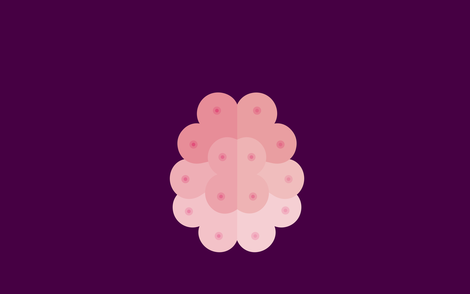Your podcast discovery platform
Curious minds select the most fascinating podcasts from around the world. Discover hand-piqd audio recommendations on your favorite topics.

piqer for: Global finds Health and Sanity Doing Good
Bangalore-based Rashmi Vasudeva's journalism has appeared in many Indian and international publications over the past decade. A features writer with over nine years of experience heading a health and fitness supplement in a mainstream Indian newspaper, her niche areas include health, wellness, fitness, food, nutrition and Indian classical Arts.
Her articles have appeared in various publications including Mint-Wall Street Journal, The Hindu, Deccan Herald (mainstream South Indian newspaper), Smart Life (Health magazine from the Malayala Manorama Group of publications), YourStory (India's media technology platform for entrepreneurs), Avantika (a noir arts and theatre magazine), ZDF (a German public broadcasting company) and others.
In 2006, she was awarded the British Print-Chevening scholarship to pursue a short-term course in new-age journalism at the University of Westminster, U.K. With a double Masters in Globalisation and Media Studies from Aarhus Universitet (Denmark), University of Amsterdam and Swansea University in Wales, U.K., she has also dabbled in academics, travel writing and socio-cultural studies. Mother to a frisky toddler, she hums 'wheels on the bus' while working and keeps a beady eye on the aforementioned toddler's antics.
In The Year Of Weinstein, It Is Time To Ask If Sex Addiction Is A Sham
There has been a rash of sexual abuse accusations, counter-accusations, rape and sexual assault charges this year. The names are big and powerful and the accusers many. From #MeToo campaigns online to solid consequences in the real world (think Harvey Weinstein), the accusations are being taken seriously.
A good time then, to examine whether sex addiction is real or if it is just another sham. This long-read by Emily Bobrow is not just timely but is also a necessary deeper look into who exactly a sex addict is and what it means to bandy about the term. It examines whether sexually deviant behaviour should be treated as a problem of addiction at all in the first place. By pathologising (and providing a certain sense of comfort and relief to the ‘addict’), are we losing our way? Are we failing to deal with the underlying (other) causes of such behaviour?
Worryingly, a growing number of sex therapists feel that treating sex addiction like substance abuse is doing more harm than good. Though sex addicts are equally self-destructive and continue to compulsively engage in that behaviour despite losing everything, many other factors are dissimilar. For instance, withdrawal symptoms. For substance addicts, the symptoms are physiological and medically serious while for sex addicts it usually stops at distress or anxiety. Some of the psychiatrists she speaks to have strong views about why sex addiction is not a thing. Keith Humphreys from Stanford is rather dismissive of the idea that one can be addicted to things like food and sex that human beings have to do to survive though he is not denying it is a problem. “Substances like heroin, by contrast, not only more dramatically hijack our brain’s pleasure pathways but also inspire behaviour that threatens people’s survival,” he says.
Ultimately the question is one of reduction. The argument the author is making is that human sexuality is too complicated an issue to box our understanding of it into pathological labelling.
